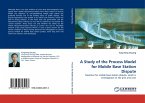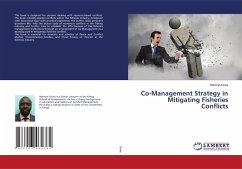Construction industry has for many years, engaged in contractual arrangements, which have often been more adversarial than co-operative. Cultural differences between project stakeholders along with the project's scope alterations are some of the many causes of conflicts and disputes.Partnering is a way of unifying all the parties to a project into a team. Team-working, co-operation and trust are integral characteristics of partnering that can lead to the successful completion of a project. However, partnering in many types of organisations could be proven fragile and inefficient in establishing sound communication links between the project teams. Through this book we will define and analyse the sources of conflict and dispute in partnering projects while at the same time with the use of the Channel Tunnel Case Study we will gain valuable conclusions concerning the weaknesses and the conflict prone areas of establishing such agreements.
Bitte wählen Sie Ihr Anliegen aus.
Rechnungen
Retourenschein anfordern
Bestellstatus
Storno








